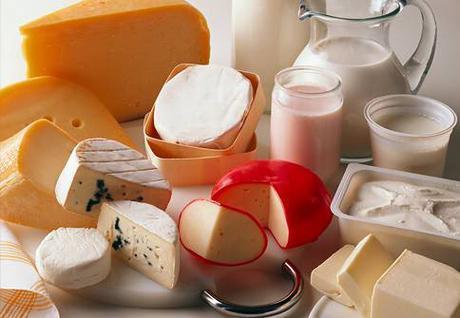Over a period of time, is considered as a cause of rise obesity in rates and problems associated with extra weight, such as heart disease, high cholesterol and diabetes, and now many people think they need to avoid fat without knowing their importance for human body. In fact, fats are important in your diet for a various reasons. Now we are going to look into the details:
What are Fats
Lipids or fats are a series of substances composed of carbon, hydrogen and oxygen and comprising an important part of the diet. The major dietary sources of fats are butter, margarine, cooking oil, dairy products and fatty meats. the first three of these foods contain over 90 percent of fat. With increasing affluence the level of fat, as well as the level of protein, in the diet is usually increased.

However, the excessive dietary energy which is stored as fat in adipose tissue just under the skin is mostly derived from biochemical conversion of excessive carbohydrate rather than directly from fat in diet. In lean people about 14 percent of the body weight is fat whereas the percentage may rise to over 60 percent in the obese.
Fats are the most efficient units of energy per unit of weight, providing more energy per gram than the same amount each of protein and carbohydrate combined. Because of this concentrated energy only small amounts of fats are necessary in the diet. Fats also store and aid in the absorption of essential fat-soluble vitamins, and supply essential fatty acids.
What Fats Do?
Fat also helps you to absorb vitamins A, D, E, and K, the fat-soluble vitamins. Fat also fills your fat cells and insulates the body to help keep you warm. Hence it is a great insulator, helping the body maintain a healthy temperature and keeping it warm.The fats your body gets from your food provide your body essential fatty acids called linoleic and linolenic acid. Similarly, fat also provides cushioning, protecting vital organs from damage. It is common knowledge that cells are the building blocks of the human body, and cell membranes are composed of fats.
Why Fats are Necessary?
Fatty acids, several of which are essential to metabolism are composed of chains of carbon and hydrogen atoms. Saturated fatty acids have carbon atoms linked by single bonds while poly-unsaturated fatty acids have double or triple bonds. Because they are unable to be manufactured in the body , they must be obtained from the diet and are therefore termed essential fatty acid, the main one being linoleic and arachidonic acids. As only very small quantities are needed, and they are plenty in food, deficiency states are very uncommon.
How Many Types of Fats are there?
There are four major dietary fats in the foods we eat:
- Saturated fats,
- Trans fats,
- Monounsaturated fats and
- Polyunsaturated fats.
The four types have different chemical structures and physical properties. The bad fats are saturated and trans fats which even tend to be more solid at room temperature, while monounsaturated and polyunsaturated fats tend to be more liquid (like vegetable oil). Therefore we must be more cautious about first two.
Effects of Cholesterol and Fats
The role of cholesterol and fats in the development of atheroma and coronary artery disease has received much publicity in recent years, cholesterol is a component of fat, especially that derived from animals, as well as important chemical produced within the body and present in all cells. Vitamin D and a number of hormones are manufactured from cholesterol which also has a number of other functions.
Although the blood level of cholesterol has been shown to have a close correlation with the prevalence of coronary disease, whether it is a cause or a result of the condition is still uncertain. Currently about 35 percent of energy in Western diets come from fats. Because of their direct effect of lowering blood cholesterol and evidence that heart disease is also reduced, some authorities have suggested that at least 10 percent of an individual's energy needs should be derived from polyunsaturated fats (particularly from margarine and cooking oil derived from plants).
ConclusionAt the end I would just like to conclude by telling what I always do to my readers. That is, there is no food harmful for health until you don't use it more than your body requires. Never over eat and besides maintain a healthy lifestyle by doing regular exercises and self improvement techniques.

